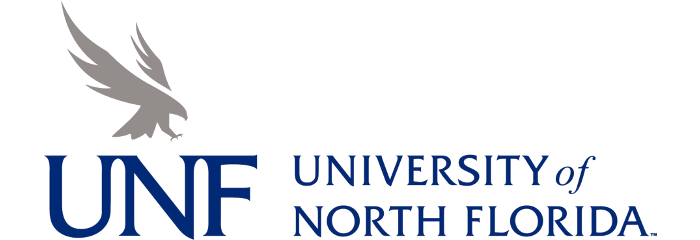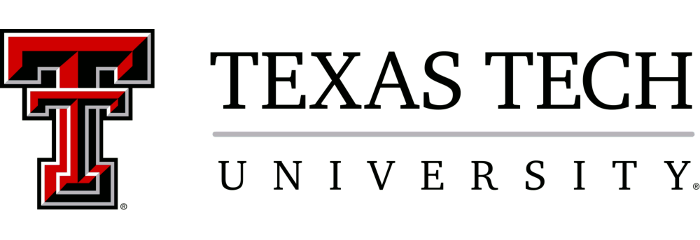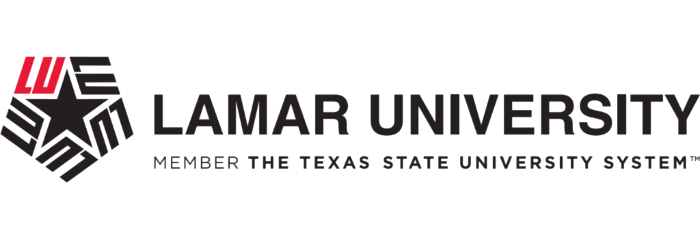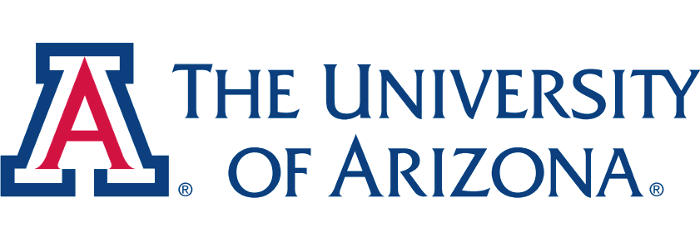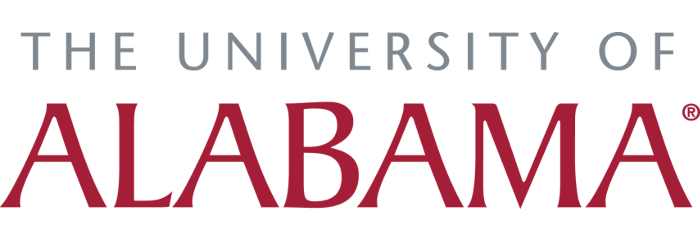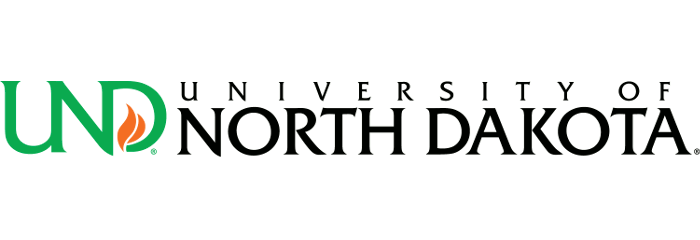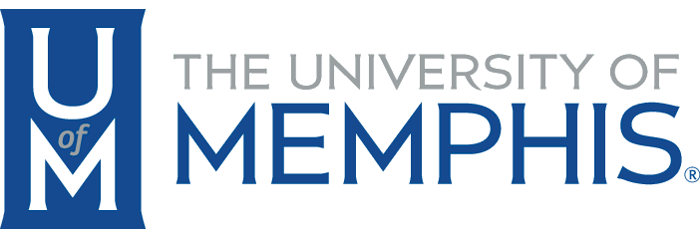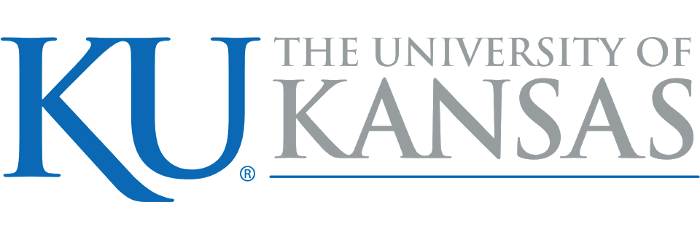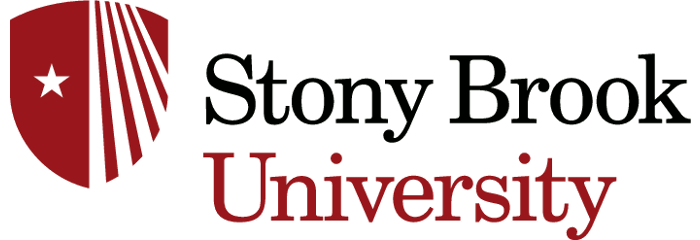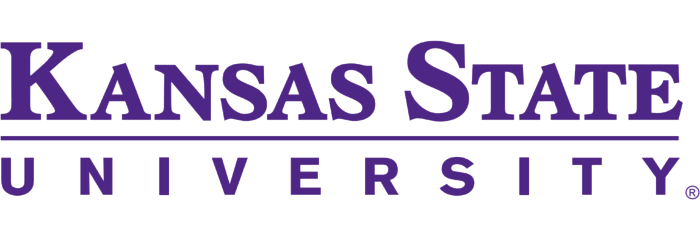2025 Best Master's Degrees in Nutrition Online
A master's in nutrition online is a flexible and accessible pathway for individuals pursuing advanced knowledge in nutritional science, dietetics, and health promotion. Graduates of these programs are prepared for advanced roles in healthcare, academia, consultancy, and public policy. We've listed 30 programs to explore in your search for the best online nutrition degree at the master's level.
Key Takeaways:
- Tufts University earns the top spot for highest median earnings of nutrition graduates.
- The top 5 programs on our list report median earnings for graduates above $58,000.
- Arizona State University, Online, is distinguished by having 66,946 students enrolled in its online graduate programs. This positions the university among the top 2% for online enrollment.
We've ranked nutrition master's programs online based on alumni salaries, assigning a proprietary Salary Score to represent real-world financial outcomes. Schools with top Salary Scores and high online enrollment are ranked higher, providing prospective students with insights into programs that offer the best long-term financial investment. View our methodology for more detailed information.
2025 Best Master's Degrees in Nutrition Online
#1
- Salary Score: A
- Median Earnings: $67,448
- Online Enrollment: 697 enrolled
- Annual Tuition: $55,280
Online degree: Master of Nutrition Science and Policy
Why we like them: Tufts University stands out for its impressive earnings potential, with graduates of the Master of Nutrition Science and Policy program earning a median salary of $67,448. This is paired with an exceptionally high graduation rate of 94%, positioning Tufts in the top 2% nationally, ensuring you have a strong likelihood of completing your degree successfully. The 30-credit curriculum is designed for professionals passionate about nutrition and food systems. The program includes three specializations: Climate, Sustainability, and Food; Data Analytics and AI in Nutrition; and Nutrition Science and Policy, with an option to create a custom track. A bachelor’s degree with one science prerequisite is required, and financial aid is available. Students gain access to extensive career support and the Friedman School’s global network of alumni and professionals.
Key Metrics:
- Salary Score: A
- Median Earnings: $67,448
- Financial Aid Recipients: 46%
- Avg. Aid Package: $51,613
- Avg. Graduation Rate: 94%
- Retention Rate: 96%
- Recommend Rate: 93%
- School Type: Nonprofit (Private)
#2
- Salary Score: B+
- Median Earnings: $62,183
- Online Enrollment: 2,571 enrolled
- Annual Tuition: $21,930
Online degree: Master of Science in Nutrition and Dietetics
Why we like them: Its median earnings for graduates stand at an impressive $62,183, positioning UNF within the top 29% for earning potential among similar programs in the U.S. This 30-credit program is designed for registered dietitians or those with a bachelor's in nutrition. The program emphasizes applying advanced nutrition knowledge across various practice areas. It offers both full-time and part-time options, with admission available for Fall, Spring, and Summer terms.
Key Metrics:
- Salary Score: B+
- Median Earnings: $62,183
- Financial Aid Recipients: 100%
- Avg. Aid Package: $8,742
- Avg. Graduation Rate: 67%
- Retention Rate: 80%
- Recommend Rate: 92%
- School Type: Nonprofit (Public)
#3
- Salary Score: B
- Median Earnings: $60,077
- Online Enrollment: 6,439 enrolled
- Annual Tuition: $15,050
Online degree: Master of Science in Nutrition
Why we like them: Texas Woman's University excels in our rankings primarily due to its impressive median earnings of $60,077 for graduates, placing it in the top 38% among its peers. The program offers three distinct paths: a thesis option, a coursework-only option, and a 100% online option. You can complete the 30-credit hour program in as little as one year. Furthermore, this master's program prepares graduates for licensure through the Texas State Board of Examiners, adding a significant credential that can propel your career forward. Specifically, TWU offers unique research opportunities, ranging from examining the effect of berries on bone health to evaluating the impact of various protein sources on exercise recovery. This demonstrates the program's commitment to integrating academic research with practical applications, further enhancing your learning outcomes.
Key Metrics:
- Salary Score: B
- Median Earnings: $60,077
- Financial Aid Recipients: 96%
- Avg. Aid Package: $9,790
- Avg. Graduation Rate: 48%
- Retention Rate: 73%
- Recommend Rate: 93%
- School Type: Nonprofit (Public)
#4
- Salary Score: B
- Median Earnings: $58,653
- Online Enrollment: 1,652 enrolled
- Annual Tuition: $19,571
Online degree: Master of Science in Nutrition and Health Sciences - Dietetics
Why we like them: UNL is ranked highly due to its impressive median earnings for graduates. With a median salary of $58,653, the program sits comfortably in the top 55 percent for earnings compared to other universities. Combining this with a stellar retention rate of 82%, which places it among the top 18 percent, reflects substantial student satisfaction and successful academic outcomes. This program not only provides flexible online learning options but also offers a non-thesis track, making it suitable for both research-focused and practice-based career paths. The curriculum includes unique specializations like Biochemical and Molecular Nutrition, Community Nutrition & Health Promotion, and Nutrition and Exercise, allowing you to tailor your education to specific career goals.
Key Metrics:
- Salary Score: B
- Median Earnings: $58,653
- Financial Aid Recipients: 95%
- Avg. Aid Package: $10,941
- Avg. Graduation Rate: 65%
- Retention Rate: 82%
- Recommend Rate: 98%
- School Type: Nonprofit (Public)
#5
- Salary Score: B
- Median Earnings: $58,437
- Online Enrollment: 4,572 enrolled
- Annual Tuition: $17,698
Online degree: Master of Science in Nutrition and Dietetics
Why we like them: With a median salary of $58,437, TTU's nutrition graduates are in the top 54% compared to their peers, showcasing a solid return on investment for your education. Another key benefit is the program's robust online presence, evident from its substantial online enrollment of 4,572 students, placing it in the top 12% nationwide. This program is specifically designed for those with a DPD verification statement, currently completing a dietetic internship, or those already registered as dietitians and nutritionists. Additionally, the curriculum offers a range of practice-based courses in areas such as maternal health, geriatric nutrition, and eating disorders, enabling you to enhance your job marketability and specialized skills in high-demand areas.
Key Metrics:
- Salary Score: B-
- Median Earnings: $58,437
- Financial Aid Recipients: 88%
- Avg. Aid Package: $9,359
- Avg. Graduation Rate: 64%
- Retention Rate: 86%
- Recommend Rate: 91%
- School Type: Nonprofit (Public)
#6
- Salary Score: B-
- Median Earnings: $58,254
- Online Enrollment: 1,382 enrolled
- Annual Tuition: $21,709
Online degree: Master of Science in Nutrition & Dietetics - Nutrition Education
Why we like them: Eastern Illinois University earns its ranking due to the graduates' median earnings of $58,254, placing them in the 54th percentile for this metric. The program requires 33 semester hours, including courses in human nutrition, public health, and leadership. It offers opportunities for Registered Dietitians (RDNs) with experience to earn credit through prior learning. The program focuses on practical and theoretical aspects of nutrition education, with electives tailored to individual goals in consultation with an advisor.
Key Metrics:
- Salary Score: B-
- Median Earnings: $58,254
- Financial Aid Recipients: 100%
- Avg. Aid Package: $11,773
- Avg. Graduation Rate: 55%
- Retention Rate: 71%
- Recommend Rate: 80%
- School Type: Nonprofit (Public)
#7
- Salary Score: B-
- Median Earnings: $57,922
- Online Enrollment: 499 enrolled
- Annual Tuition: $24,322
Online degree: Master of Science in Nutrition and Dietetics
Why we like them: With median earnings of $57,922, the program is highly competitive, placing it in the top 48% of institutions nationally, which signifies a strong return on your educational investment. The program requires 36 credits and can be completed full-time over three semesters or part-time in two to six years. The curriculum incorporates advanced coursework and supervised experiential learning, precisely targeting the skills needed for the CDR RDN credentialing examination.
Key Metrics:
- Salary Score: B-
- Median Earnings: $57,922
- Financial Aid Recipients: 89%
- Avg. Aid Package: $9,974
- Avg. Graduation Rate: 75%
- Retention Rate: 72%
- Recommend Rate: 90%
- School Type: Nonprofit (Public)
#8
- Salary Score: B-
- Median Earnings: $56,625
- Online Enrollment: 66,946 enrolled
- Annual Tuition: $17,885
Online degree: Master of Nutritional Science - Dietetics
Why we like them: The median earnings of graduates at $56,625 are notable, placing ASU in the top 54% of institutions, thus ensuring a solid financial return on investment. Moreover, ASU's program is designed based on the scientific foundations of nutrition, requiring 30 credit hours spread across 10 classes, with each class lasting 7.5 weeks. Importantly, applicants must be a registered dietitian nutritionist or have completed an accredited didactic program in dietetics, ensuring a high standard of peer engagement and academic excellence. The program is versatile, offering electives in areas such as sports nutrition, pediatric nutrition, and obesity prevention, allowing you to tailor your studies to your specific career goals.
Key Metrics:
- Salary Score: B-
- Median Earnings: $56,625
- Financial Aid Recipients: 93%
- Avg. Aid Package: $12,381
- Avg. Graduation Rate: 66%
- Retention Rate: 85%
- Recommend Rate: 90%
- School Type: Nonprofit (Public)
#9
- Salary Score: N/A
- Median Earnings: $56,339
- Online Enrollment: 3,686 enrolled
- Annual Tuition: $25,594
Online degree: Master of Science in Food Science, Nutrition, & Health Promotion
Why we like them: With graduate median earnings of $56,339, MSU alumni are positioned well in the job market, placing the program in the top 45% nationwide for this parameter. Complementing this, MSU boasts an impressive retention rate of 81%, which places it in the top 19% of universities, reflecting strong student satisfaction and continuity. Students must complete 33 credit hours and offering both thesis and non-thesis options. The degree focuses on developing competencies aligned with the Certified Health Education Specialist credential, ensuring that you are well-prepared for roles such as community health specialist, public health educator, or health coordinator. The program also includes in-depth coursework in health promotion techniques, behavioral epidemiology, and the design and administration of health promotion programs.
Key Metrics:
- Salary Score: N/A
- Median Earnings: $56,339
- Financial Aid Recipients: 98%
- Avg. Aid Package: $14,252
- Avg. Graduation Rate: 63%
- Retention Rate: 81%
- Recommend Rate: 89%
- School Type: Nonprofit (Public)
#10
- Salary Score: N/A
- Median Earnings: N/A
- Online Enrollment: 45,783 enrolled
- Annual Tuition: $8,475
Online degree: Master of Science in Nutrition
Why we like them: Liberty University is a top choice for impressive online enrollment of 45,783 graduate students, ranking it in the top 1% nationwide. This reflects the program's ability to deliver quality education on a large scale. Complementing this is the substantial support for military students, with a military enrollment of 13,760, also placing Liberty in the top 1% among universities. The 36-credit program is designed to be completed in as little as one year. The curriculum includes courses on epidemiology, food-borne illness prevention, and chronic disease management, with the flexibility of 8-week courses and multiple start dates each year. While the program does not lead to Registered Dietitian certification, it offers a pathway to becoming a Certified Nutrition Specialist (CNS). This program is ideal for those seeking to advance in health, wellness, or nutrition-related careers.
Key Metrics:
- Salary Score: N/A
- Median Earnings: N/A
- Financial Aid Recipients: 98%
- Avg. Aid Package: $12,471
- Avg. Graduation Rate: 62%
- Retention Rate: 79%
- Recommend Rate: 57%
- School Type: Nonprofit (Private)
#11
- Salary Score: N/A
- Median Earnings: N/A
- Online Enrollment: 9,257 enrolled
- Annual Tuition: $32,416
Online degree: Master of Science in Food Science
Why we like them: The University of Illinois is exemplary in terms of online enrollment, ranking in the top 2% of universities with over 9,200 online students. We also appreciate the institution's impressive retention rate of 93%, placing UI among the top 5% of universities, showcasing student satisfaction and engagement. This degree offers flexible course scheduling with one to three courses per semester. It prepares students for careers in food safety, quality assurance, and product development, emphasizing leadership in the field. Applicants need a 3.0 GPA and must complete prerequisite courses in subjects like calculus, chemistry, and microbiology. The program is offered in both the fall and spring semesters, with application deadlines in April and November.
Key Metrics:
- Salary Score: N/A
- Median Earnings: N/A
- Financial Aid Recipients: 64%
- Avg. Aid Package: $16,552
- Avg. Graduation Rate: 85%
- Retention Rate: 93%
- Recommend Rate: 97%
- School Type: Nonprofit (Public)
#12
- Salary Score: N/A
- Median Earnings: N/A
- Online Enrollment: 6,967 enrolled
- Annual Tuition: $15,755
Online degree: Master of Science in Nutrition
Why we like them: Lamar University stands out for its significant online enrollment figures. With 6,967 students opting for online study, Lamar is among the top 3% of institutions nationwide with the highest online student populations. This 30-credit program is designed for completion in as few as 12 months and has concentrations in either Applied Nutrition or Sport Nutrition. The curriculum includes 9 hours of core courses, 6 hours of concentration courses, and 15 hours of electives, with topics like nutrition counseling, global food cultures, and medical nutrition therapy.The program is designed for those aiming for careers in fields like wellness coaching and food services management.
Key Metrics:
- Salary Score: N/A
- Median Earnings: N/A
- Financial Aid Recipients: 95%
- Avg. Aid Package: $10,397
- Avg. Graduation Rate: 38%
- Retention Rate: 59%
- Recommend Rate: 71%
- School Type: Nonprofit (Public)
#13
- Salary Score: N/A
- Median Earnings: N/A
- Online Enrollment: 5,059 enrolled
- Annual Tuition: $23,911
Online degree: Master of Science in Nutrition
Why we like them: We appreciate that NSU's average financial aid package is notably high in the 84th percentile, highlighting how effectively NSU supports its student community financially. The curriculum excels in offering comprehensive training, including specialized concentrations like sports nutrition and herbal therapy. You can also complete the 30-credit master's program in as little as one year, indicating a flexible yet rigorous pace. Upon completion, graduates are well-prepared for licensure and certification, such as the Registered Dietitian Nutritionist (RDN) and Certified Nutrition Specialist (CNS), ensuring you are industry-ready.
Key Metrics:
- Salary Score: N/A
- Median Earnings: N/A
- Financial Aid Recipients: 100%
- Avg. Aid Package: $23,958
- Avg. Graduation Rate: 62%
- Retention Rate: 78%
- Recommend Rate: 83%
- School Type: Nonprofit (Private)
#14
- Salary Score: N/A
- Median Earnings: N/A
- Online Enrollment: 3,548 enrolled
- Annual Tuition: $19,962
Online degree: Master of Science in Nutrition Sciences
Why we like them: UAB’s high retention rate of 82% signals strong student satisfaction and success, as this places the school among the top 18% of universities in this metric. UAB's master's degree is a non-thesis program that can be completed in three semesters if enrolled full-time. The curriculum leverages diverse teaching methods such as virtual discussions, recorded lectures, discussion boards, and team projects, ensuring a comprehensive understanding of complex nutrition theories. Notably, the program includes elective options for local students, adding a layer of flexibility and practicality to your learning experience. The option for clinical practicum courses offers specialized training in pediatric nutrition, weight management, and clinical research, though these are available face-to-face in Birmingham.
Key Metrics:
- Salary Score: N/A
- Median Earnings: N/A
- Financial Aid Recipients: 96%
- Avg. Aid Package: $11,142
- Avg. Graduation Rate: 64%
- Retention Rate: 82%
- Recommend Rate: 96%
- School Type: Nonprofit (Public)
#15
- Salary Score: N/A
- Median Earnings: N/A
- Online Enrollment: 3,373 enrolled
- Annual Tuition: $20,771
Online degree: Master of Science in Nutrition
Why we like them: East Carolina University has an impressive online enrollment of 3,373 students, situating it within the top 7% of universities nationwide for online student populations. The retention rate at ECU is 80%, placing it in the top 21% of universities, an indicator of student satisfaction and program quality. The curriculum requires 33 semester hours and offers both thesis and non-thesis options, allowing you to tailor your education to your career goals and research interests. The program is comprehensive, including essential courses like biostatistics and human nutrition, ensuring a robust academic foundation. Notably, the requirement of core research and professional practice components enhances both theoretical and practical knowledge, preparing you well for nutrition science careers.
Key Metrics:
- Salary Score: N/A
- Median Earnings: N/A
- Financial Aid Recipients: 80%
- Avg. Aid Package: $9,020
- Avg. Graduation Rate: 65%
- Retention Rate: 80%
- Recommend Rate: 92%
- School Type: Nonprofit (Public)
#16
- Salary Score: N/A
- Median Earnings: N/A
- Online Enrollment: 3,001 enrolled
- Annual Tuition: $12,707
Online degree: Master of Science in Applied Nutrition - Dietetics
Why we like them: The University of Arizona ranks highly for its exceptional online enrollment, with 3,001 students participating in online programs, positioning it in the top 9% among universities nationwide. Furthermore, the retention rate of 86% exemplifies a strong level of student satisfaction and success, placing it in the top 13% of institutions. This 30-credit program designed for those pursuing the Registered Dietitian Nutritionist (RDN) credential. The program includes coursework on advanced nutrition metabolism, medical nutrition therapy, and applied nutritional sciences, combined with 1,000 hours of supervised experiential learning. It is accredited by the Accreditation Council for Education in Nutrition and Dietetics (ACEND) and can be completed in as little as 12 months.
Key Metrics:
- Salary Score: N/A
- Median Earnings: N/A
- Financial Aid Recipients: 98%
- Avg. Aid Package: $15,279
- Avg. Graduation Rate: 68%
- Retention Rate: 86%
- Recommend Rate: 97%
- School Type: Nonprofit (Public)
#17
- Salary Score: N/A
- Median Earnings: N/A
- Online Enrollment: 2,985 enrolled
- Annual Tuition: $34,182
Online degree: Master of Science in Clinical Nutrition
Why we like them: Rutgers has an impressive retention rate of 92%, showing that students are highly satisfied with their educational experience. This also reflects in the graduation rate of 84%, placing Rutgers in the top 4% of universities nationally, indicating a strong commitment to student success. This master's program is tailored exclusively for Registered Dietitian Nutritionists (RDNs). You can complete the 31-credit curriculum on either a part-time or full-time basis. One notable feature is the Nutrition Focused Physical Examination (NFPE) course, which combines online learning with an in-person workshop, making it a comprehensive educational experience. Additionally, the program's dual enrollment option with the Doctor of Clinical Nutrition degree offers an accelerated path for those looking to advance their expertise further.
Key Metrics:
- Salary Score: N/A
- Median Earnings: N/A
- Financial Aid Recipients: 70%
- Avg. Aid Package: $12,785
- Avg. Graduation Rate: 84%
- Retention Rate: 92%
- Recommend Rate: 90%
- School Type: Nonprofit (Public)
#18
- Salary Score: N/A
- Median Earnings: N/A
- Online Enrollment: 2,730 enrolled
- Annual Tuition: $17,712
Online degree: Master of Science in Food and Nutrition Sciences
Why we like them: OU secures a position in our rankings due to its substantial online enrollment. With 2,730 students opting for online studies, the university is in the top 9% of online programs nationwide, demonstrating both popularity and robust digital infrastructure. Adding to this, the university offers a high recommendation rate of 95%, which speaks to the positive experiences and satisfaction of its graduates. The program requires a comprehensive curriculum grounded in the latest nutrition science, helping you meet licensure requirements and succeed in the field. This self-paced program can be completed in as little as one year.
Key Metrics:
- Salary Score: N/A
- Median Earnings: N/A
- Financial Aid Recipients: 98%
- Avg. Aid Package: $9,416
- Avg. Graduation Rate: 65%
- Retention Rate: 79%
- Recommend Rate: 95%
- School Type: Nonprofit (Public)
#19
- Salary Score: N/A
- Median Earnings: N/A
- Online Enrollment: 2,514 enrolled
- Annual Tuition: $32,150
Online degree: Master of Science in Human Nutrition
Why we like them: The University of Alabama has a strong retention rate of 87%, placing it in the top 11% of universities. The 30-credit master's program offers a competitive advantage through specialized tracks such as Clinical Nutrition, Community Nutrition, or a Generalist route, enabling you to tailor your education to your career aspirations. Additionally, UA ensures that cost is less of a barrier with a substantial financial aid package, averaging $15,683—this generosity places the university in the top 25% for financial aid.
Key Metrics:
- Salary Score: N/A
- Median Earnings: N/A
- Financial Aid Recipients: 87%
- Avg. Aid Package: $15,683
- Avg. Graduation Rate: 73%
- Retention Rate: 87%
- Recommend Rate: 96%
- School Type: Nonprofit (Public)
#20
- Salary Score: N/A
- Median Earnings: N/A
- Online Enrollment: 2,418 enrolled
- Annual Tuition: $30,906
Online degree: Master of Nutrition
Why we like them: With 2,418 students enrolled in online programs, NC State ranks among the top 12% of universities globally for this metric, indicating a robust digital infrastructure. A high retention rate of 94%, placing NC State within the top 4% of institutions, underscores strong student satisfaction and engagement. The program requires 36 credit hours, including up to 6 credit hours of practicum or internship, and offers specializations in Human Nutrition and Feed Science.
Key Metrics:
- Salary Score: N/A
- Median Earnings: N/A
- Financial Aid Recipients: 80%
- Avg. Aid Package: $9,181
- Avg. Graduation Rate: 85%
- Retention Rate: 94%
- Recommend Rate: 95%
- School Type: Nonprofit (Public)
#21
- Salary Score: N/A
- Median Earnings: N/A
- Online Enrollment: 2,156 enrolled
- Annual Tuition: $29,220
Online degree: Master of Science in Food Science and Nutrition - Dietetics
Why we like them: The online enrollment at CSU Fort Collins, with 2,156 students, places it among the top 13% of institutions, indicating a strong and thriving online learning community. This demonstrates the program's effectiveness in delivering quality education to a significant number of students remotely. Complementing this, CSU excels with an impressive retention rate of 86%, placing it in the top 13% for student satisfaction and continued enrollment, highlighting the program's compelling appeal and supportive academic environment. The program emphasizes both the scientific and practical aspects of dietetics, requiring students to engage deeply with subjects such as food science and human nutrition. The program’s focus on dietetics ensures that you are well-equipped to meet licensure requirements and excel professionally in this field.
Key Metrics:
- Salary Score: N/A
- Median Earnings: N/A
- Financial Aid Recipients: 84%
- Avg. Aid Package: $10,727
- Avg. Graduation Rate: 67%
- Retention Rate: 86%
- Recommend Rate: 87%
- School Type: Nonprofit (Public)
#22
- Salary Score: N/A
- Median Earnings: N/A
- Online Enrollment: 2,007 enrolled
- Annual Tuition: $32,942
Online degree: Master of Science in Nutrition
Why we like them: Auburn University stands out for its online enrollment figures, with over 2,000 students taking part in their online programs. Complementing this, Auburn's impressive retention rate of 93% places it in the top 5% of universities, indicating high student satisfaction and continuity in education. The program's structure ensures comprehensive learning and convenience, requiring 33 credit hours, including 5 hours of non-thesis research. You can choose electives emphasizing Nutrition Science, Clinical Nutrition, Sports Nutrition, or Community Nutrition.
Key Metrics:
- Salary Score: N/A
- Median Earnings: N/A
- Financial Aid Recipients: 79%
- Avg. Aid Package: $9,791
- Avg. Graduation Rate: 81%
- Retention Rate: 93%
- Recommend Rate: 92%
- School Type: Nonprofit (Public)
#23
- Salary Score: N/A
- Median Earnings: N/A
- Online Enrollment: 1,987 enrolled
- Annual Tuition: $19,658
Online degree: Master of Science in Nutrition
Why we like them: UND shines due to its strong online enrollment, placing it in the top 15% of institutions nationwide for having a substantial online student population. You can choose from two specialization tracks: Nutrition Science and Nutrition Education and Counseling. The Nutrition Science track is aligned with the Certified Nutrition Specialist (CNS) requirements and focuses on nutrigenomics and clinical nutrition care, whereas the Nutrition Education and Counseling track includes hands-on practicum experiences, enriching your practical skills. Overall, the program is accessible, requiring only 30 credit hours and designed to be completed in approximately two years.
Key Metrics:
- Salary Score: N/A
- Median Earnings: N/A
- Financial Aid Recipients: 92%
- Avg. Aid Package: $6,387
- Avg. Graduation Rate: 63%
- Retention Rate: 79%
- Recommend Rate: 91%
- School Type: Nonprofit (Public)
#24
- Salary Score: N/A
- Median Earnings: N/A
- Online Enrollment: 1,851 enrolled
- Annual Tuition: $14,724
Online degree: Master of Science In Nutrition - Environmental Nutrition
Why we like them: With 1,851 students opting for online study, you'll be joining a vibrant virtual community. The program offers a unique curriculum that emphasizes the intersection of nutrition and environmental issues, underpinned by courses that explore food sustainability, food justice, and alternative approaches to nutrition. With this curriculum, you're prepared to address real-world challenges in sustainable nutrition practices effectively. Additionally, the program's requirement to complete an applied project and internship ensures that you gain practical experience directly related to your field, making your education both relevant and actionable.
Key Metrics:
- Salary Score: N/A
- Median Earnings: N/A
- Financial Aid Recipients: 99%
- Avg. Aid Package: $9,625
- Avg. Graduation Rate: 48%
- Retention Rate: 75%
- Recommend Rate: 84%
- School Type: Nonprofit (Public)
#25
- Salary Score: N/A
- Median Earnings: N/A
- Online Enrollment: 1,824 enrolled
- Annual Tuition: $16,392
Online degree: Master of Science in Nutrition and Dietetics
Why we like them: Central Michigan University ranks highly due to its substantial online enrollment, placing it among the top 16% of universities with the highest number of distance learners. This program spans 2.5 years and requires 31-37 credit hours. Moreover, if you have completed a dietetic internship without receiving graduate credit for it, you may apply for up to 12 semester hours of Credit by Examination.
Key Metrics:
- Salary Score: N/A
- Median Earnings: N/A
- Financial Aid Recipients: 99%
- Avg. Aid Package: $11,314
- Avg. Graduation Rate: 62%
- Retention Rate: 72%
- Recommend Rate: 90%
- School Type: Nonprofit (Public)
#26
- Salary Score: N/A
- Median Earnings: N/A
- Online Enrollment: 1,732 enrolled
- Annual Tuition: $11,450
Online degree: Master of Science in Nutrition and Food Systems
Why we like them: We appreciate that Southern Miss offers a scholarship for first-time, fully online students enrolling at the school. If you are enrolled in online classes for the first time, you can qualify for a $500 scholarship to be used in your first semester. The program requires 33-36 credit hours for completion. The curriculum blends leadership, nutrition counseling, education, and health promotion with advanced knowledge in nutrition and food systems management. Unique offerings include the opportunity to couple this degree with a dietetics internship, preparing students comprehensively for careers in dietetics, child nutrition program management, and community nutrition.
Key Metrics:
- Salary Score: N/A
- Median Earnings: N/A
- Financial Aid Recipients: 92%
- Avg. Aid Package: $9,296
- Avg. Graduation Rate: 52%
- Retention Rate: 70%
- Recommend Rate: 84%
- School Type: Nonprofit (Public)
#27
- Salary Score: N/A
- Median Earnings: N/A
- Online Enrollment: 1,668 enrolled
- Annual Tuition: $25,008
Online degree: Master of Science in Dietetics and Nutrition
Why we like them: Ranked for its significant online enrollment, the University of Kansas (KU) excels with 1,668 students in its online program, placing it in the top 18% of universities for online student population. This 36-credit hour program features core courses in advanced nutrition, micronutrients, and nutrigenetics. Students can choose between a thesis or non-thesis track for their research requirement. Elective options include specialized topics such as public health nutrition, healthcare administration, and medical nutrition therapy. The flexible curriculum is designed to support diverse career goals in clinical, community, and public health nutrition settings.
Key Metrics:
- Salary Score: N/A
- Median Earnings: N/A
- Financial Aid Recipients: 91%
- Avg. Aid Package: $11,140
- Avg. Graduation Rate: 67%
- Retention Rate: 85%
- Recommend Rate: 94%
- School Type: Nonprofit (Public)
#28
- Salary Score: N/A
- Median Earnings: N/A
- Online Enrollment: 1,535 enrolled
- Annual Tuition: $25,733
Online degree: Master of Science in Nutrition
Why we like them: Stony Brook University excels with an online enrollment of 1,535 students, positioning it among the top 19% of institutions with high online student populations. Additionally, the retention rate at SBU stands at 88%, situating it in the top 9% of universities, highlighting strong student satisfaction and commitment to their studies. This program offers valuable concentrations in Advanced Nutrition Therapy & Critical Care and Integrative Nutrition Therapy, catering to diverse professional interests. Notably, while the program doesn't meet prerequisites for Dietetic Internship programs or the RD exam, its rigorous focus on both theoretical and applied nutrition makes it highly beneficial for advancing professional nutrition practice.
Key Metrics:
- Salary Score: N/A
- Median Earnings: N/A
- Financial Aid Recipients: 88%
- Avg. Aid Package: $11,584
- Avg. Graduation Rate: 78%
- Retention Rate: 88%
- Recommend Rate: 90%
- School Type: Nonprofit (Public)
#29
- Salary Score: N/A
- Median Earnings: N/A
- Online Enrollment: 1,505 enrolled
- Annual Tuition: $23,977
Online degree: Master of Science in Nutrition, Dietetics and Sensory Sciences
Why we like them: KSU has a strong retention rate of 86%, placing it in the top 13% of universities. Additionally, the program boasts a robust online enrollment, situated among the top 19% in this category, indicating a strong and well-supported virtual learning environment. With a curriculum designed for flexibility, you can choose from concentrations such as sensory analysis, nutrition and exercise sciences, and public health nutrition, ensuring your education is tailored to your specific career aspirations. Furthermore, the program requires 30 credit hours and offers multiple completion pathways, including thesis, report, or coursework-only options, providing you with the necessary tools and knowledge to advance in various nutrition-related fields.
Key Metrics:
- Salary Score: N/A
- Median Earnings: N/A
- Financial Aid Recipients: 94%
- Avg. Aid Package: $8,537
- Avg. Graduation Rate: 69%
- Retention Rate: 86%
- Recommend Rate: 98%
- School Type: Nonprofit (Public)
#30
- Salary Score: N/A
- Median Earnings: N/A
- Online Enrollment: 1,471 enrolled
- Annual Tuition: $39,126
Online degree: Master of Science in Nutrition Education
Why we like them: American University stands out for its impressive online enrollment of 1,471, placing it among the top 19% of universities with the highest online student populations. Complementing this is a high graduation rate of 79%, putting the institution in the top 7% nationally for this metric, which signifies strong student satisfaction and support systems. The program is designed to be completed in as little as 20 months and offers comprehensive training in the field of nutrition education. Additionally, it provides opportunities to prepare for the Certified Nutrition Specialist (CNS) credential, enhancing its practical value. Furthermore, all accepted applicants to the online master’s program may be eligible for scholarship opportunities.
Key Metrics:
- Salary Score: N/A
- Median Earnings: N/A
- Financial Aid Recipients: 83%
- Avg. Aid Package: $27,138
- Avg. Graduation Rate: 79%
- Retention Rate: 86%
- Recommend Rate: 88%
- School Type: Nonprofit (Private)
2025 Best Master's Degrees in Nutrition Online
| Rank | School | Salary Score | Median Earnings | Online Enrollment |
|---|---|---|---|---|
| Tufts University | $67,448 | 697 | ||
| University of North Florida | B+ | $62,183 | 2,571 | |
| Texas Woman's University | B | $60,077 | 6,439 | |
| University of Nebraska - Lincoln | B | $58,653 | 1,652 | |
| Texas Tech University | B- | $58,437 | 4,572 | |
| Eastern Illinois University | B- | $58,254 | 1,382 | |
| SUNY Oneonta | B- | $57,922 | 499 | |
| Arizona State University, Online | B- | $56,625 | 66,946 | |
| Mississippi State University | B- | $56,339 | 3,686 | |
| Liberty University | N/A | N/A | 45,783 |
What Is a Master's in Nutrition Degree?
An online master's in nutrition gives students a holistic understanding of how food affects health and well-being through different biological, social, and economic processes. Students learn about healthy food systems and how factors such as age, gender, and income influence nutritional health.
Graduates of master's in nutrition programs should finish their degree with the skills and expertise necessary to help a diverse array of clients optimize their health and well-being through dietary changes. Students pursuing a master's in the field of nutrition can specialize in specific niches of food science, including public health, food service administration, holistic nutrition, and environmental nutrition. There are also online public health degrees available as an alternative pathway.
Some master's programs prepare students to work in nutrition in general, while others prepare students for licensure as a Registered Dietitian or Registered Dietitian Nutritionist (RD or RDN). Students who want to become RDNs will need to get a master's specializing in dietetics through a program accredited by the Accreditation Council for Education in Nutrition and Dietetics (ACEND). There are also programs available for students with a bachelor's in nutrition who want to earn their master's in order to remain competitive in their field.
Degree Requirements
An online master's in nutrition generally requires 30-36 credit hours and takes two years of full-time study to complete. Some schools offer accelerated programs, where students can finish in just one year, while others allow students to enroll part time to accommodate work and other responsibilities.
Some online nutrition master's degree programs require students to complete an internship or practicum, which is especially important for students who want to qualify for the RDN credential after graduation. Dietetics students will need hands-on experience gained through a supervised didactics practicum to gain certification as an RDN. Online students can usually complete practicum requirements by working with a registered dietitian in their local area.
Courses
Pursuing a master's in nutrition online involves gaining valuable research skills while studying various aspects of the food system. Coursework is heavily focused on concepts in the biological sciences, including metabolic processes, micro- and macronutrients, and epidemiology. Other courses focus on the societal aspects of nutrition, teaching students about food production, how consumables are marketed, and how people make dietary choices based on the information they receive.
The following are common courses in a nutrition master's program:
Advanced Nutrition and Metabolism
Students taking this class learn about the biological processes through which nutrients are absorbed into the body. In addition to gaining an understanding of the nutritional value in chemical compounds, such as carbohydrates and fats, they also learn about how toxins affect us.
Nutrition and Culture
Students enroll in this elective to better understand how social norms affect nutrition. Topics covered include the political and economic drivers of food availability in the U.S., religious beliefs about diet, and the impact of culture on community nutrition.
Evidence-Based Nutrition
Because so much of nutritional research is funded by corporations with financial interest in what the public sees as healthy or unhealthy, understanding how to evaluate the quality of new research is critical for nutrition professionals. Students will learn to evaluate clinical research studies and data by looking at factors, such as biological variation, sample size, experimental design, analytical integrity, and bias in design and analysis, and assess how they can incorporate new research into their clinical practice.
Nutrition and Aging
This class examines how age affects nutritional health. Students learn about changes in dietary requirements as individuals grow older as well as common threats posed by certain minerals and chemicals in older populations' food.
Meet Professional Nutritionist Kathleen Putnam
Kathleen Putnam has been a professional nutritionist for 20 years, and she has extensive experience in many facets of the nutrition field. She earned a Bachelor of Science in nutrition and dietetics from Oregon State University and a Master of Science in nutrition from Bastyr University. For the past 10 years, she has been at a private practice, NutritionWorks Seattle, where she counsels individuals and groups. When she is not meeting with her clients, she teaches nutrition courses at Shoreline Community College.
Why Did You Decide To Become a Nutritionist?
I was first attracted to this field because I have always been interested in my own personal nutrition. I was also drawn to the teaching aspect of nutrition as well as the constant learning. This is a dynamic subject, and the data is constantly changing. I knew I would enjoy learning and growing along with the field.
Are There Common Misconceptions About Your Profession?
Yes, people commonly think that nutritionists will be judgmental and condescending and that we will dictate what they can and cannot eat. But we don't force changes on people. We are here to help people understand why changing their habits is so difficult. Nutritionists are knowledgeable about human behavior and development, and we don't want to set people up for failure. An eating plan is only successful if it works for the individual person. We help people to make healthy choices in our modern culture while considering people's budgets, lifestyle, and personal preferences. Nutritionists are facilitators.
What Is a Typical Day Like for You?
Most days, I meet with four or five clients at my practice, Seattle NutritionWorks. Some days I also conduct a one-hour group session. When I am not meeting with clients, I update charts, communicate with therapists and physicians about clients, blog, and answer questions on my website. I make time each week to communicate and network with other professionals in the nutrition field. I also teach nutrition courses at local colleges. I currently teach two five-credit classes, although most quarters I only teach one class at a time.
What Advice Would You Give to a Student Studying To Become a Nutritionist?
If you are considering studying to become a nutritionist, you should first be aware of the time and education commitment. Often, students don't realize that a bachelor's degree in nutrition is not enough. Most nutritionist jobs will require you to be a registered dietitian. In order to become a registered dietitian, you will need to complete a yearlong internship after college, and then you will need to pass the national licensing exam. In all, it is a minimum commitment of five years, and you should understand the requirements ahead of time.
In addition to recognizing the level of commitment, I would also recommend that you research the profession and educate yourself about the salary range as well as the salary range of related fields.
Above all else, don't be discouraged by things that you hear or read; if it is your passion, you can have success. You will have plenty of opportunities, especially internationally, and your opportunities will probably increase as time goes on. If you love what you do and you have a passion for nutrition, you can make money in the field. You might have to supplement your income through teaching or writing, and you might have to be creative to get your foot in the door and gain experience. But if you want to work as a nutritionist, you will find success. There is room for you!
What Can You Do With a Master's in Nutrition?
Most students earn their master's in nutrition to become nutritionists or RDNs and work directly with nutrition clients. After a master's program, some may go on to complete further education in nutrition, such as a certificate or doctorate. Others may pursue RDN certification or another type of licensure, or they may start their career in the health and wellness industry.
Further Education
After finishing a master's in nutrition, some students go on to earn a doctorate in nutrition or a related field to advance their academic and professional expertise. Doctoral programs, such as a Doctor of Philosophy (PhD) in nutrition, usually involve rigorous research and allow students to dive deeply into specific areas of study within the field. Doctoral studies may focus on areas like clinical nutrition, public health, molecular nutrition, or food science. Graduates with a doctorate often pursue careers in academia, research institutions, or specialized advanced roles in healthcare or the food industry.
Some students might instead choose a post-graduate certificate in another specialized area of study they didn't get to focus on during their master's program, such as sports nutrition or public health.
Nutrition Careers
A master's degree can open the door to a range of advanced career opportunities in nutrition and the wellness industry. Graduates of a nutrition program often enter the field to work directly with clients and are uniquely qualified to make a positive impact on the lives of individuals and communities by promoting healthy eating habits and providing nutritional education.
Becoming a nutritionist or registered dietitian (RD or RDN) are two of the most common career paths for nutrition professionals with a master's degree. While the two careers are very similar in scope, the main difference between a nutritionist and a dietitian is that RDNs are required to have state licensure to practice. While RDs and RDNs have certification that allows them to work as health professionals, nutritionists are more limited in the services they are able to provide without licensure.
RDs often work in more clinical settings, providing nutrition therapy to patients in hospitals, nursing homes, and other facilities. Nutritionists might work as consultants, lifestyle coaches, or nutrition writers.
FAQs About Master's in Nutrition Programs
How Much Does a Master’s in Nutrition Cost?
The cost of a master's in nutrition can range significantly depending on where you go to school. The most affordable master's degrees in nutrition cost around $5,000 to $7,000 per year. More expensive programs can cost upwards of $25,000 per year. Students should also take lost wages into consideration when figuring out how much their degree will cost them.
In general, online degrees are more affordable than in-person programs because students don't have to pay for transport, on-campus housing, or relocation, and they can often keep working during their program. Some schools even charge distance learners in-state tuition rates, which are generally lower.
Is It Hard to Earn a Master's in Nutrition?
A master's in nutrition requires a blend of social sciences and STEM classes, which means students interested in the major will likely see a mix of classes that are easier and more difficult for them, depending on their strengths. For some students, a master's in nutrition may be more difficult than other programs due to the science-heavy classes necessary to understand how nutrition impacts our bodies at the cellular level. However, other students may have more success in a nutrition program than other degrees if they are interested in the material.
How Long Does It Take to Earn a Master's in Nutrition?
Earning a master's in nutrition usually takes about two years of full-time study. Students pursuing an RDN credential will also need to complete 1,000 clinical hours, either during their program or during an internship, which translates into about six months of full-time work. Some programs incorporate practicum hours into their curriculum as part of the program, while others do not include this as a requirement. Students who don't enroll in a program that includes practicum requirements will need to spend additional time getting these hours in after graduation.
Is a Master's in Nutrition Worth It?
The worth of any degree varies based on students' career goals, personal circumstances, and finances. In general, however, investing in graduate school may lead to increased future earnings. A master's in nutrition may also result in a rewarding career for those interested in improving individual or communal health through food science.
There are a few pros and cons students should consider. One of the most important things to think about is that a master's is required to become a dietitian. Another pro of earning a master's in nutrition is that it can lead to careers in multiple sectors, including government, business, education, and nonprofit. However, there are some potential downsides. The additional requirements needed for RDN certification may push some students to pursue another degree. Depending on where they live, some students may also have a hard time finding somewhere to do their practicum.
What Degree Is Best For Nutritionists?
Students who want to become nutritionists should earn their master's in nutrition. Those who want to become registered dietitians and work in a clinical setting should focus on a master's in nutrition and dietetics that meets RDN licensure requirements.
Bottom Line
A master's degree in nutrition is one of the most important steps toward becoming a nutritionist or dietitian as it helps future nutrition professionals qualify for certification and licensure.
A master's program in nutrition can be challenging because students must take an interdisciplinary approach to food science, deepening their knowledge in biology, sociology, and economics, to name a few. Aspiring nutritionists also often need to complete a number of practicum hours as part of their master's degree. While it is a significant investment in time and money, a master's in nutrition can lead to a fulfilling and rewarding career in the industry for those who are passionate about nutrition and helping others.
Student Reviews of Online Nutrition Programs
I have attended a wide variety of online universities, and the UWS excels at making the online environment rigorous and engaging. If you are looking for an easy ride through a program, this school is not for you. The exams are comprehensive and demanding, as is the course work. But the professors are fair, and if an extension is needed, they will grant it. The studies are all evidence-based, and directly applicable to real life situations in the health care field. This is a great school, and moderately... Read More
Review Date: 2/3/2023
Would Recommend: Yes
I am very happy to be attending this university the classes I took really opened my eyes and not only helped me with my nutrition as a Crossfit athlete, the knowledge I gained made it possible for me to help athletes at the Crossfit gym that I coach at with there nutrition needs and questions.
Review Date: 6/13/2017
Would Recommend: Yes
My journey began at EU in 2014. B.S. in Alternative Medicine in 2018 & continued on to my MPHA in Functional Nutrition (Grad 2020). Going to EU has been an awesome experience. All online & still have the ability to take care of a child with a chronic disease. The only wish I have is for EU student to be able to obtain a license or be certified through an organization to legitimize the hard work we've put in. EU is an amazing school and deserves to be recognized through those organizations.
Review Date: 12/23/2019
Would Recommend: Yes
I chose their Masters Exercise /Nutrition since it was all online and I could work full time while taking 1 or 2 classes each semester. I wanted the most up to date research on exercise and nutrition --to help my profession- this degree was well worth it. There is volunteer work required for the graduation requirement which added to the learning experience.
Review Date: 10/2/2023
Would Recommend: Yes
Being an online student, there are many pros and cons to my program format. I am thankful that it is convenient, easily accessible, firmly structured, and very clearly presented. I can easily communicate with my professors and classmates. The online format allows me to listen to lectures and view course materials repeatedly at my own pace withing the week-long module, allowing me to synthesize the material effectively. However, the lack of interaction with classmates and instructors can be difficult... Read More
Review Date: 3/31/2016
Would Recommend: No
I started an online master science in food safety in the Michigan State University MSU. I recently change my job with a position close related with food regulations so this master perfectly fit my requirements to give me tools to be very successful in my new food safety career giving to me more information in areas as food law or food toxicology where I had no experience. The Master Program offered relevant material on those two topics from first semester that helped me to acquire a wide knowledge... Read More
Review Date: 12/18/2016
Would Recommend: Yes
I began pursuing my Master's online in the winter of 2016, after almost 20 years post Bachelor's. I have 7 classes left to complete the program. The staff and faculty, including all student assistants have been wonderful to work with. They have made the transition back to student status very easy. The online format of this program is wonderful for people that are currently employed full time, that wish to further their education. A couple of the classes have had a live chat component each week, which... Read More
Review Date: 6/26/2017
Would Recommend: Yes
UB has an excellent online MS in Human Nutrition program. Professors are all highly qualified, many holding a PhD , MD, and/or ND degree and many having gone through the program themselves. There is a strong focus on the biochemical aspect of human nutrition as well as human disease, functional medicine, assessment and analysis of evidence through an evidence based nutrition course. The online program is moderate to difficult in intensity and requires discipline to keep up with the weekly work load,... Read More
Review Date: 2/13/2018
Would Recommend: Yes
I graduated from the online degree program. The instruction and curriculum has given me the foundation for my future career. I loved the lessons and assignments and how they were tied together with biblical principles. I agree with other reviewers that no one who applies to Liberty (a renowned Christian college), should be the least bit surprised of this. If they are uncomfortable, then they should not have applied for admission.
Review Date: 5/14/2018
Would Recommend: Yes
Northeastern University was the first of 10 different graduate programs that took a chance on me. My undergraduate career was not as important to me until it came time to graduate. I am so very grateful to have had this opportunity to continue my education. The online program is awesome! It fits into my schedule as well as being user friendly. The availability of the professors and interactions with other students is unbelieveable. There has been no issues and I still feel like I am getting the best... Read More
Review Date: 1/8/2015
Would Recommend: Yes
The distance program in Nutrition, Healthspan, and Longevity (MS-NHL) offered at the University of Southern California is an accredited, coordinated program in Dietetics through the Davis School of Gerontology. After completion of the two year program (which consists of coursework and supervised practice hours with a dietitian) the student is able to take the RD exam. As the MS-NHL is only in it's third year of existence at USC, there are a handful of issues with collaboration of the combined distance... Read More
Review Date: 9/28/2016
Would Recommend: Yes
This program is still working out its kinks, that being said, it has the potential to be amazing. Some of the professors are incredible, the classes are all incredibly organized, and the assignments are well thought out and contribute to the education. One of the biggest downfalls to this program is that it advertises to be a program which can work well with a full-time schedule, but this is not very easy to do. The workload can be very heavy. It also bears no consideration for time differences.... Read More
Review Date: 3/29/2017
Would Recommend: Yes
Why I chose to attend Mansfield University for my graduate studies is a simple answer. I attended for my bachelors so it was familiar. However, I didnt realize how much of a great, new, challenging experience it would be. One great feature is that it is completely online. Online may not be for everyone, but the professors at Mansfield do such a good job of interacting and having you interact with peers that it feels in the classroom. From discussion boards to plenty of group projects, you get to... Read More
Review Date: 1/19/2018
Would Recommend: Yes
The faculty and staff are very supportive, as well as challenging. The curriculum is relevant, challenging, interesting, and applicable.
Review Date: 2/21/2014
Would Recommend: Yes
My graduate program is honestly beautiful in it's striving for a holistic education and aiming to transform it's students in the process of them learning. I feel like it would be an even better experience on campus because it seems like the campus and university have a lot to offer in regards to enhancing a students experience. Unfortunately, I have to say that I was deeply disappointed at the lack of financial aid, and just lack of consultation with students regarding tuition costs. Being an online... Read More
Review Date: 8/27/2015
Would Recommend: Yes
They have done an amazing job making this masters program work efficiently online. I still feel incredibly connected to my peers and teachers and have never lacked support or resources. So far I feel like I am getting my moneys worth
Review Date: 2/17/2016
Would Recommend: Yes
small class sizes and easily accessible faculty (pros) no classes offered online (con for me because I commute)
Review Date: 1/3/2014
Would Recommend: Yes
That graduate program is offered as an online format which makes it easy for people who have serious careers and a demanding schedule to make time to further their education. The online format also makes it harder to interact on a personal level with teachers and other students. The school was very thorough in explaining how to use their systems; they provided detailed instructions for everything. All of the admissions staff was very informative and helpful if there was ever a problem.
Review Date: 5/3/2014
Would Recommend: Yes
I love Benedictine's MSNW program. It is challenging and the faculty are intelligent.
Review Date: 9/23/2014
Would Recommend: Yes
It is a smaller school, which has its benefits. I liked that I could call administrators and I would actually talk with a person to get problems resolved. They also work really well at long distance students.
Review Date: 12/1/2015
Would Recommend: Yes
Why Trust Us?
27 Data
Researchers
60,000 Degrees Researched Annually
20,000 Hours Spent on Research Annually
Launching Rankings Since 2009






